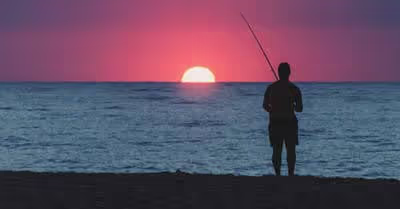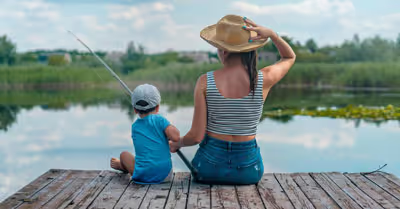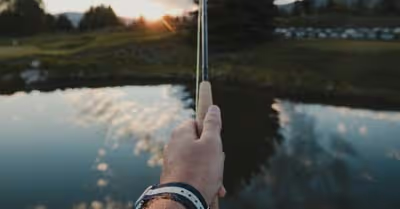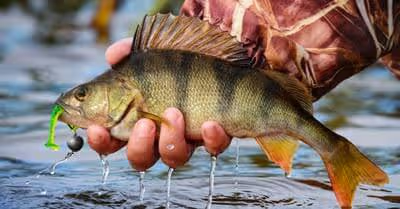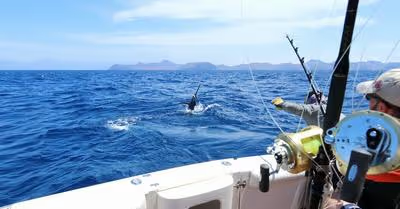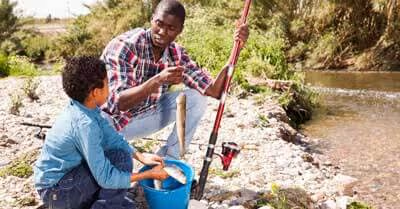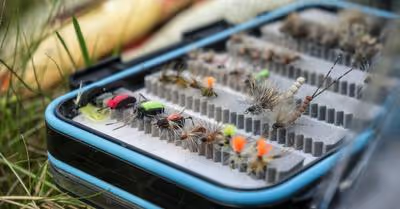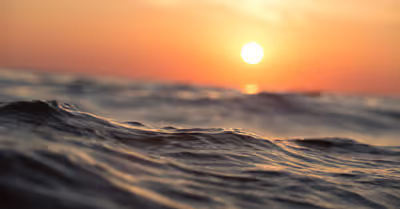Table of Contents
State Licensing Requirements
Fishing licenses are generally issued by the states. However, these licenses, as well as the fishing rules and regulations, may vary from state to state on depending on when, how, and who can fish within a given jurisdiction. Most states generally stipulate that adult anglers must obtain fishing permits and licenses to fish on publicly accessible lands and waters even if it’s for recreational purposes.
Again, these fishing licenses may vary in prices, duration, and the type of fishing you’re allowed to undertake, for instance, freshwater or saltwater fishing.
But because our main aim is to fish without a license, here’s how to do it.
Look for “Free Fishing Days”
Like we’ve just noted, fishing licenses, as well as rules and regulations, may vary from state to state. For example, the fishing license in New York will not work in Florida and vice versa. This could, therefore, mean that you get the fishing license for any state that you’re planning to fish in. Fortunately, you can take advantage of free fishing days that are offered by most states as a perfect way of fishing without a license.
Free fishing days are a perfect way for both beginners and experienced anglers to fish without necessarily getting a license. And even if you have a license, these free fishing days are generally a perfect time to take with you a friend or a loved one who doesn’t have a license or has never been fishing.
And because we can’t list all the free fishing days across all the states, here’s a great place to find free fishing days across all the states. Keep in mind that these free fishing dates might come in handy when you’re planning for a fishing vacation. In other words, it would make a lot of sense if you plan your fishing vacation around the free fishing days so that you avoid paying the fees but you have to remember that you’ll only fish without a license for a day or two.
In essence, license-free fishing days are a brilliant opportunity if you don’t yet have a fishing license or if you want to take with you a friend or a family member out there on the water for fishing without having to buy a license. During these days, the fishing license requirements are not necessary for all recreational anglers both residents and non-residents. But even with that, you have to observe all other fishing rules and regulations such as seasons, bag, and size limits.
Are You Exempt from a Fishing License?
Although this may vary from state to state, there are generally various persons who do not have to get a fishing license to enjoy fishing. For example, in Florida, which is one of the best states to fish in, these persons do not need a fishing license to enjoy angling.
- Under the age of 16
- Senior Florida residents (65 years or older)
- A resident in active military service
- Permanently disabled persons
An individual with an intellectual disability where fishing is part of the medically-approved therapy
If you freshwater fish in your county of residence.
Again, these exemptions may vary from state to state so you should check whether you are exempted in your state or in the state you’re planning to fish in. For example, Florida exempt senior Florida residents from a fishing license while California offers seniors and veterans discounted fishing licenses. You can check on the internet or with your respective state to find out if these exemptions might work to your advantage.
Fishing on Private Land
You do not require a fishing license to fish in many private ponds or lakes across the country as long as you’re permitted to do so by the owner of the private land. In most cases, you’ll be practicing catch-and-release whereby you enjoy fishing but safely put the fish back on the water without causing any harm. Some private lands though will allow you to keep the fish but you may be required to keep the fish for a little fee or for free.
However, there are some important things that you need to know when fishing in these private ponds or lakes. They include:
The lake or pond must be entirely on private property. There must be no public stream or river feeding the pond or the lake, and If there’s a public stream that passes through the lake either from inside or outside even if the lake is entirely on the private land, you’ll need a license.
As such, it very important to make sure that you find out whether it’s perfectly legal to fish in the private land without a fishing license.
Fishing on a Public Pier
In California, you can fish from a public pier in ocean or bay waters as long as it’s not for commercial purposes. A public pier is essentially man-made construction that’s connected to the landmass or a chartered natural island or connected above the mean high tide to the main coastline and has unrestricted free access to the general public. Public piers are generally built to allow anglers or the general public to access the ocean or bay waters.
Other places such as breakwaters, jetties, sea walls, promenades, docks, linings, moles, barriers, and other structures do not qualify as public piers. As such, you’ll have to get a license to fish in such areas. Although a fishing license may not be required to fish from a public pier especially in California, you have to adhere to all other fishing regulations.
So Can You be Arrested for Fishing Without a License?
The direct answer to this question is: probably not. Unless there are exceedingly mitigating circumstances, there is generally no jail time for fishing without a license. However, this doesn’t mean that you can just fish without a proper or valid fishing license. This is because there are severe penalties for fishing without a license.
Fishing without a valid license when and where you’re required to have one means that you’re breaking the fishing rules and regulations and there could be serious repercussions. Depending on the severity of your violation and the rules in place, you can either face license suspensions or huge fines. These will, of course, affect your ability to enjoy fishing, which is a thrilling pastime for most Americans. In most states, the fine for fishing without a license is around $50 but this can be higher or lower depending on the severity of your violation.
Again, pleading guilty for fishing without a license will earn you 10 points on your fishing license. You could lose your fishing license altogether if you’ve earned ten other points in the last five years. These points can quickly increase for every additional fish in your possession at the time.
For instance, if you go fishing in Colorado without a valid fishing license, you’ll incur a $50 fine for not having the license with you and another $35 for the first fish and an additional $10 and a point for every additional catch. So if you have 5 catches for the day, you’ll incur $125 plus additional points that may get your license revoked for up to 5 years.
It’s, therefore, advisable to carry your fishing license every time you go for a fishing trip to avoid these unnecessary fines.
Conclusion
If you’re an avid angler, you certainly wouldn’t want anything that might impede this favorite pastime. While you’ll need a fishing license to fish without the risk of having to pay hefty fines, there are instances when you can fish without a license. In most cases, be sure to check the free fishing days in your state or the state where you’re planning to fish in. You can also check if you’re exempted from fishing without a fishing license or if you can fish in private land where you do not require a fishing license.
All in all, make sure that you adhere to the fishing rules and regulations and avoid having to pay hefty fines just because you do not have a valid fishing license or because you forgot yours back at home!
Recent Articles



